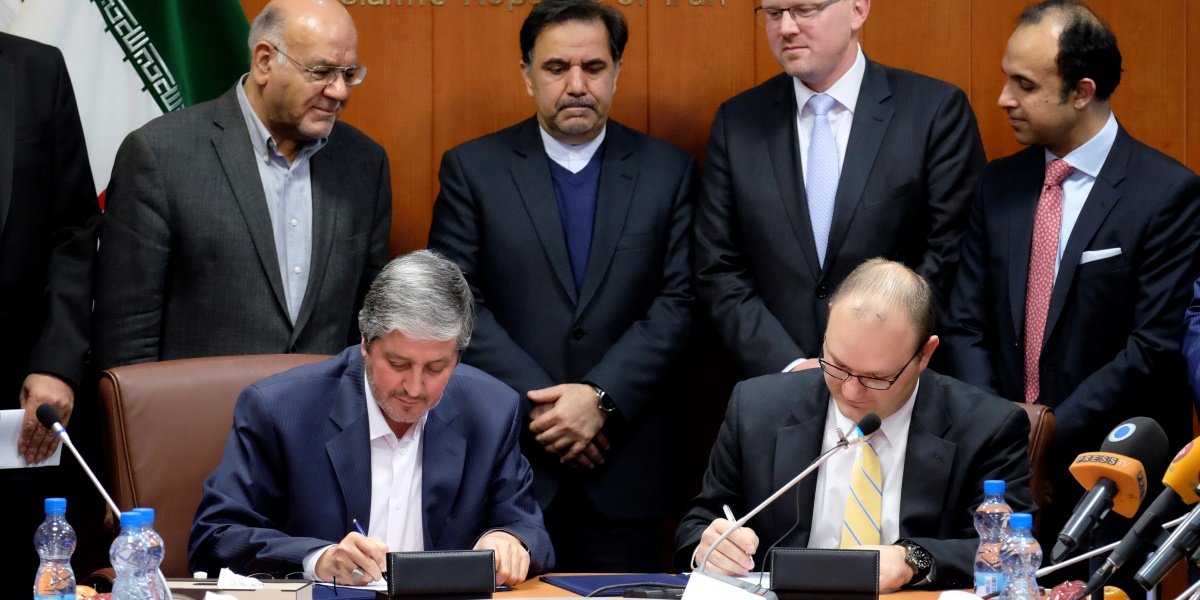PKK's Suicide Attacks Pave Way for Turkish Incursion
The same people who hailed the PKK as a merry band of revolutionaries might soon have to face the fact that they were in bed with terrorists all along.
More


Challenging the Iranian Influence over Iraq
A new balance of power is emerging between Russia and the U.S. as well as among regional powers including Turkey, Iran and Saudi Arabia.
More
The Turkish-backed Free Syrian Army needs to liberate al-Bab and reinforce the safe zone with moderates who left eastern Aleppo under the Turkey-Russia deal
Turkey is the main humanitarian actor on the ground spearheading intense shuttle diplomacy with Russia for a peaceful resolution of the Aleppo crisis
The main motive of Turkish-Russian relations is the interdependence in the economy, taking into consideration that bilateral trade between the two countries is quite high.
Iran is trying to establish its own area of influence before Trump is sworn in and points to Iran as the main other in the Middle East
Resisting Speculative Attacks
Turkey will continue to resist speculative attacks orchestrated by domestic and international investors with an optimal mixture of prudent governance and counter-speculative moves made by key market players
More


Is It the End of the Attrition War In Syria?
There is a genocide going on in Aleppo in front of the eyes of the entire world; civilians are being killed indiscriminately, without a care for whether man or woman, child or adult, child, young or old
More
The public debate on constitutional reform and presidentialism is symptomatic of broader changes in state-society relations in Turkey
Defining Erdoğan's political vision, which has found a wide response in Turkey, as "ethnic or Islamic nationalism," is a big mistake. Erdoğan's political vision could be described as "civic nationalism" at best.
Turkey is seeking to protect its economic and political interests in northern Iraq while fighting against PKK and ISIL.
A quick look at the West's treatment of Turkey over the past decade reveals that Mr. Erdoğan's disappointment isn't some emotional reaction but a structural transformation already underway
The reason for the current situation between Turkey and the EU is not the personal approaches of Erdoğan or European politicians. It has more structural reasons
The EU countries failed to deal with domestic challenges, and the rise of cultural and moral crises
The Gulenist Terrorist Organisation has an international support network. Unlike IS threats of "lone wolves" and its widespread alienation by the public, Gulenists benefit from a certain level of public legitimacy.
The rise of populism on the back of anti-immigrant sentiment and protectionism slowly eradicates the West's liberal credentials
The transnational networks of FETO may eventually become a Messianic elite diaspora network that may not only threaten Turkey’s interests but also manipulate the politics of the host countries.
Turkey was only a step toward a broader goal; the organization will certainly continue to disseminate and realize its messianic purpose from East to West. FETO should be considered a global threat to the democratic world order.
It is meaningless to condemn the coup attempt without taking action against the leading putschist. A decisive step by the US government to change the negative perception held by the Turkish public would be the extradition of Gülen to Turkey.
Turkey is now about to recover from this uneasy process by the help of its national solidarity. We are certainly going to keep flocking and protecting the streets and city squares against the pro-coup terrorists until the last threat is finally eliminated.
In this atmosphere the NYT continues with its oppositional stance to Turkey and radical anti-Erdoğan sentiment, despite its supposed liberal editorial line.

















